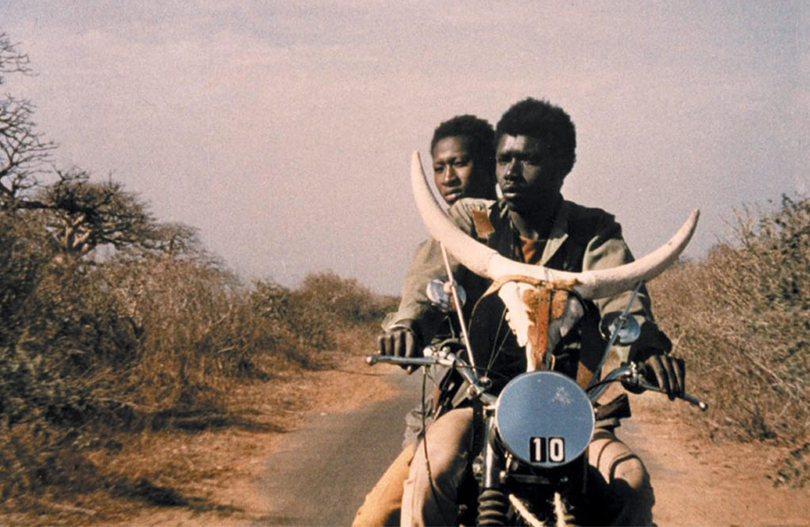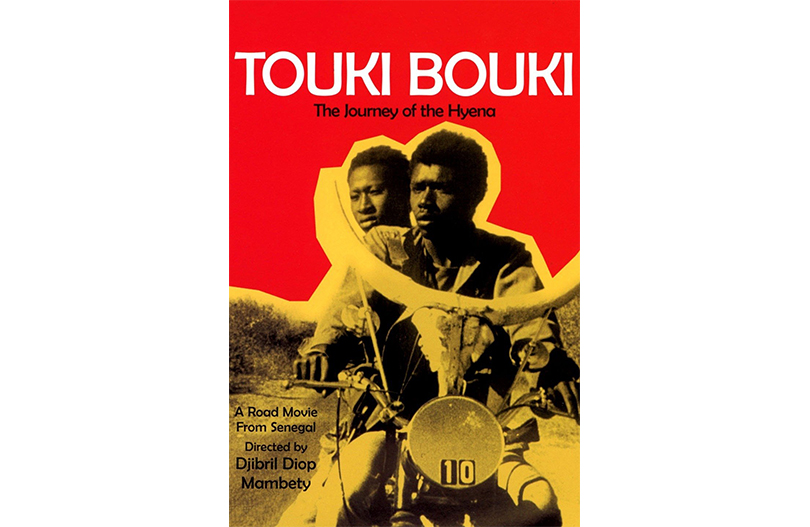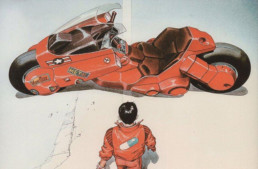The Vintagent Classics: The films that inspired us.
TOUKI BOUKI (pronounced tukki bukki), Wolof for ‘The Journey of the Hyena’ (1973)
Run Time: 1:25:00
A Film By: Djibril Diop Mambéty
Key Cast: Magaye Niang, Myriam Niang, Christoph Colomb
FILM MAKERS
Touki Bouki is a 1973 Senegalese drama film, directed by Djibril Diop Mambéty. It was shown at the 1973 Cannes Film Festival and the 8th Moscow International Film Festival. The film was restored in 2008 at Cineteca di Bologna / L’Immagine Ritrovata Laboratory by the World Cinema Foundation. It was selected as the 93rd greatest film of all time by the Sight and Sound Critic’s Poll. This film is now part of the Criterion Collection, spine #685. This film is believed to be Africa’s first avant-garde film, although Oh, Sun (1967) could also make this claim.
Based on his own story and script, Djibril Diop Mambéty made Touki Bouki with a budget of $30,000 – obtained in part from the Senegalese government. Though influenced by French New Wave, Touki Bouki displays a style all its own. Its camerawork and soundtrack have a frenetic rhythm uncharacteristic of most African films – known for their often deliberately slow-paced, linearly evolving narratives. However, it has been asserted that the jump cuts and radical spatial shifts of the film are inspired by African oral traditions. The word “Bouki” in the title refers to a popular folk character, known for causing mischief and cheating his way to what he wants. Through jump cuts, colliding montage, dissonant sonic accompaniment, and the juxtaposition of premodern, pastoral and modern sounds and visual elements, Touki Bouki conveys and grapples with the hybridization of Senegal.
West African cinema contemporaneous with Touki Bouki was primarily financed and distributed by the French Ministry of Cooperation’s Bureau du Cinema, which ensured that scripts had to conform to cinematographic standards acceptable to the French Government. Touki Bouki, in contrast, was made without any French financial assistance, allowing Mambéty relatively significant autonomy in production of the film. Mambéty’s ready adoption of French New Wave techniques was to a degree motivated by meagre financial resources, circumstances similar to those of the film-makers of the early French New Wave. Narrative and cinematographic techniques associated with the Western genre (known for dehumanizing depictions of Native Americans and minorities) were also subversively utilized by Mambéty in the production of the film.
During the production of Touki Bouki, Mambéty was arrested for participating in anti-racist protests in Rome, and bailed out by lawyers from the Italian Communist Party after appeals from friends such as Bernardo Bertolucci and Sophia Loren. The experience of receiving a request from the Italian Communist Party to compensate them for the legal fees spent in his defence served as an inspiration for a character in his later film, Hyènes. – Wikipedia
SUMMARY
Mory, a cowherd who drives a motorcycle mounted with a bull-horned skull, and Anta, a student, meet in Dakar. Alienated and tired of life in Senegal, they dream of going to Paris and come up with different schemes to raise money for the trip. Mory eventually succeeds in stealing the money, and a large amount of clothing, from the household of a wealthy homosexual while the latter is taking a shower. Anta and Mory can finally buy tickets for the ship to France. But their wealthy victim phones the police who begin to tail the duo, and when Anta and Mory board the ship in the Port of Dakar, the loudspeaker summons Mory to see the captain. Upon hearing this, Mory leaves Anta and runs away madly to find his bull-horned motorcycle, only to see that it has been ruined in a crash that nearly killed the rider who had taken it. The ship sails away with Anta but not Mory, who sits next to his hat on the ground, staring disconsolately at his wrecked motorcycle.
RELATED MEDIA
Complete Interview with Djibril Diop Mambéty (1997)
Martin Scorcese on Touki Bouki
Watch the FULL FILM or Buy the DVD on Criterion Collection





